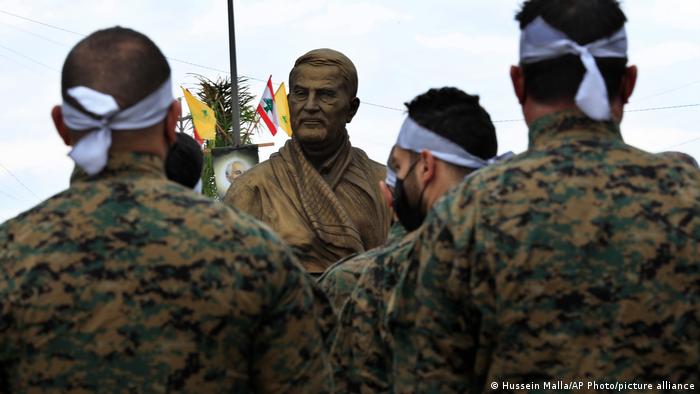By Saundra Latham, Editor at LinkedIn News — Soon, you may be able to catch your favorite HBO show on … Netflix? Warner Bros. Discovery is in talks to license certain original HBO programs to Netflix, according to various outlets, including Deadline. The arrangement would “mark the first time in nearly a decade” HBO content […]

BEIRUT – By Bassem Mroue — (AP) — Auto tycoon Carlos Ghosn has filed a $1 billion lawsuit against Nissan and about a dozen individuals in Beirut over his imprisonment in Japan and what he says is misinformation spread against him, Lebanese officials said Tuesday. According to the officials, Ghosn’s lawsuit accuses Nissan and the individuals of defamation and of “fabricating charges” against him, which eventually put him behind bars in Japan. The lawsuit was filed last month, the judicial officials said, speaking on condition of anonymity to discuss the case. The officials did not identify the individuals that Ghosn is accusing. Ghosn was arrested in Japan in November 2018 on charges of breach of trust, misusing company assets for personal gains and violating securities laws by not fully disclosing his compensation. According to Judge Sabbouh Suleiman, who is at the Beirut’s prosecutor’s office, a hearing date in the case was set for September.
The judicial officials who spoke to The Associated Press said that Nissan and the accused individuals are expected to send representatives to Beirut or name a Lebanese lawyer to represent them. The 69-year-old Ghosn, who for two decades was the head of Nissan and Renault, has repeatedly said he is innocent. In December 2019, he jumped bail in Japan in a daring escape by hiding in a box spirited aboard a private jet out of the country. Prosecutors in Japan have charged three Americans with helping Ghosn escape the country. He now lives in Lebanon, which has no extradition treaty with Japan and does not extradite its citizens. Renault and Nissan have both been distancing themselves from the Ghosn scandal. Ghosn has citizenship in Lebanon, France and Brazil.

By Najia Houssari – ARABNEWS.COM — BEIRUT: The Lebanese parliament on Monday passed an appropriation bill to cover public sector employees’ salaries and transportation allowances. The decision came even though the caretaker government led by Prime Minister Najib Mikati has not yet approved the 2023 budget or adjusted the figures in the 2022 budget. In a controversial session, the 128-seat parliament also passed a proposal for a law that provides financial incentives and transportation allowances to professors at the Lebanese University during the current academic year. The session was boycotted by 29 MPs representing opposition Christian parties and reformist MPs. The session achieved a quorum with the presence of MPs from the Free Patriotic Movement bloc, led by MP Gebran Bassil. This parliamentary bloc considered its stance to be in line “with the principle it adopted, which limits its participation in legislating essential matters related to the higher interests of the state.”
The boycotting MPs emphasized in a joint statement that Monday’s meeting came after Hezbollah and Amal Movement team disrupted the 12th voting session last Wednesday. According to the constitution, parliament cannot legislate if the position of president remains vacant. It is exclusively an electoral body until the president is elected. Therefore, the MPs said the session is unconstitutional, and additional appropriations cannot be approved in the absence of the 2023 budget, which has not been passed by the caretaker government lacking parliamentary confidence. The boycotting MPs from the Lebanese Forces, Kataeb and Tajaddod blocs said that “the arbitrary and unfunded increases lead to inflation, which previously resulted in cutting the purchasing power of these salaries in half.” This approach “lacks seriousness, vision, and a comprehensive plan, and it does not address the problems,” they added. Speaker Nabih Berri responded to the boycotting MPs at the opening of the session. He said: “Some parties believe that the government should not meet, and the parliament should not convene or legislate. If we want to proceed with what they want, then we will never work.” Mikati said during the session that “the 2023 budget is ready, and the Finance Ministry will send the final draft of the budget to the government before the end of June to begin its discussion, and we will call for consecutive government sessions to approve it.”

this may not necessarily represents khazen.org opinion it just represents an opinion from Economics Professor Nadim Shehadi — \
by NADIM SHEHADI — arabnews.com — There is an “end of time” mood in Lebanon. Beirut feels like a combination of the last days of Byzantium, with all the internal bickering, together with the fall of Rome, with a vibrant nightlife and fully booked restaurants. At the same time, the country’s institutions are crumbling, one after the other. The process is driven by a series of default options with the inability to make decisions, except those taken by default. The failure once again to elect a president this week is a perfect example of how the system is blocked and being held hostage until it complies. It also means that the country is heading toward more paralysis and further erosion of institutions. The mandate of the governor of the central bank ends in July, and that of the commander of the army a few months later. Neither of them can have their terms renewed, nor can an appointment currently be made to replace them. Lebanon is slowly disintegrating, with no president, a paralyzed parliament and a caretaker government with limited powers. Soon it might also be without a functioning judiciary, army or banking system.
It is the perfect crime, because nobody is responsible. The inability to take any action means everything happens by default and everyone accuses everyone else. In the meantime, the saga of the presidential election, and the scandals surrounding the governor of the central bank, keep the country busy and are a distraction from the main issue, which is a combination of inertia and atrophy resulting from blocking the system at every stage. The fact is that Lebanon desperately needs a president but Hezbollah does not. The current state of the country is ideal for Hezbollah’s operations. With the collapse of the banking sector and the financial meltdown, Lebanon is now largely a cash economy made sustainable, to a certain extent, by a regular inflow of dollars from the Lebanese diaspora to support their families. The whole economy, and its global connections, is being transformed into a giant money-laundering machine. The bickering brings the country down, while the festivities keep it going. The biggest question about the election of a president is no longer who will win. It is how long the void will remain and will there be a new president at all. The office has been vacant for long periods before.

Exploring the Potential of Natural Gas in Lebanon’s Energy Market.
by energyportal.eu — Lebanon, a small Mediterranean country, has been facing an energy crisis for years. The country’s energy infrastructure is outdated, and its electricity sector is struggling to meet the growing demand. Frequent power outages and an overreliance on expensive and polluting diesel generators have become the norm for many Lebanese households and businesses. However, recent discoveries of natural gas reserves in the Eastern Mediterranean could offer a solution to Lebanon’s energy woes. In 2017, Lebanon’s government approved the country’s first offshore oil and gas exploration licenses, opening up the potential for tapping into the vast natural gas reserves in the Levant Basin. According to the United States Geological Survey, the Levant Basin, which stretches from the coasts of Israel, Lebanon, and Cyprus, holds an estimated 122 trillion cubic feet of natural gas. This presents a significant opportunity for Lebanon to diversify its energy mix and reduce its dependence on costly and polluting fossil fuels.
The development of Lebanon’s natural gas sector could have numerous benefits for the country’s economy and environment. Firstly, natural gas is a cleaner and more efficient source of energy compared to oil and coal. By transitioning to natural gas, Lebanon could significantly reduce its greenhouse gas emissions and improve air quality, which has been a growing concern in recent years. Additionally, natural gas is a more cost-effective energy source, which could help lower electricity prices for consumers and reduce the financial burden on the government. Furthermore, the development of Lebanon’s natural gas industry could create much-needed jobs and stimulate economic growth. The energy sector has been identified as a key driver of economic development in Lebanon, and the exploitation of natural gas reserves could attract foreign investment and boost the country’s GDP. In a country with high unemployment rates and a struggling economy, the potential for job creation and economic growth cannot be understated.
DUBAI, (Reuters) – The United Arab Emirates in the coming days will lift a temporary restriction on issuing visas to Lebanese nationals due to security concerns, a UAE official told Reuters on Thursday. “Temporary restrictions are in place in response to security concerns. Temporary restrictions continuously undergo review and are subject to be lifted for […]

The 12th session to elect a new President of the Republic did not lead to ending the presidential vacancy, as was expected, given the withdrawal of supporters of the “Marada Movement” leader, Suleiman Franjieh, from the hall. The “Lebanese Forces” accused the withdrawal of obstructing the presidential elections, in exchange for calls for dialogue issued by Franjieh and Parliament Speaker Nabih Berri. With the exception of Franjieh obtaining 51 votes, in contrast to the former minister Jihad Azour’s obtaining 59 votes, no significant surprises emerged, given that the political forces supporting Azour poured their votes into the fund in his favour, as the commitment of the “Lebanese Forces” and the “Free Patriotic Movement” emerged. And the “Progressive Socialist Party” and the “Lebanese Kataeb Party” and some independents and changeists took the position, while Franjieh’s supporters committed to voting for him, led by “Hezbollah” and “Amal Movement” and their allies, in exchange for canceled papers and other votes proving that they have not decided Their choice is still in favor of one of the two weighted candidates.
A candidate in the first round needs a two-thirds majority, or 86 votes, to win. The required majority, if a second round takes place, becomes 65 votes. But the quorum requires the presence of two-thirds in the two sessions. The first session of the session, which was inaugurated by Parliament Speaker Nabih Berri, was attended by all 128 members of parliament, but it did not result in electing a president, with the main candidates, Franjieh, who is supported by Hezbollah, and Azour, who is supported by significant blocs opposed to the party, with a close number of votes. Azour got 59 votes in the first round, while Franjieh got 51 votes. And as soon as the votes began to be counted, a number of deputies withdrew, led by representatives of “Hezbollah” and “Amal Movement”, which led to the overthrow of the quorum for the second session, in a repetition of the previous scenario, which overthrew 11 sessions over a period of 7 months.
by english.alarabiya.net — The US on Wednesday called on Lebanon’s leaders and “elites” to stop putting their own interests and ambitions above the people of their country after the Lebanese parliament failed to elect a new president for the 12th time since last year. After a first session, which saw IMF official Jihad Azour garner […]

by Jerry Maher — arabnews.com — It is no secret that Hezbollah and its followers are restless about all that is happening in Lebanon on the economic, financial and social levels as a result of the suffocating crisis the country is going through. Hezbollah’s immediate suffering is one of the consequences of the war in Syria and its involvement there, which has led to the martyrdom of a large number of young people. However, amid signs of the end of the war in Syria and Damascus’ return to the Arab fold via the Arab League, it has become clear to the families of the fighters that the blood of their sons was spilled in vain, with no gains resulting from the party’s participation in the conflict in Syria on the basis of the “strategic aims of the resistance.” Therefore, resentment among the many Shiites who make up the party’s base increases on a daily basis, amid the stifling economic crisis and unstable living conditions the country is facing.
After all, they live with other Lebanese people and they share the same suffering. It appeared clearly and publicly with the launch of the popular movement of the Oct. 17 Revolution in 2019, when areas in Southern Lebanon and the Bekaa Valley witnessed popular movements under the slogan “All means all.” They accused the political class, including Hezbollah, of bringing the country to a state of economic deterioration and financial crisis — the worst since the civil war ended. Anger and resentment against the party’s policies are now being expressed publicly, no longer behind walls or in restricted meetings. As a result of the insane increase in the price of essential consumer goods and fuel, as well as the decline in purchasing power as a result of the Lebanese pound’s deteriorating value against the US dollar, people can no longer tolerate staying silent and have started to publicly express their views. In the end, a hungry man is an angry man, and all barriers fall before starvation. The impact of Hezbollah’s policies was evident in last year’s parliamentary elections, as turnout declined significantly in some of its strongholds. It is worth noting that the party and its allies directly employed tactics of intimidation and fear toward voters. Such practices were intense and widespread.
khazen.org emphasizes the significance of elections, acknowledging that there may not be a flawless candidate. Similar to other countries that elect presidents, the race typically narrows down to two candidates, as seen in the USA and France. Despite personal disagreements with the candidates, it is crucial to make a choice between them. The absence of […]



